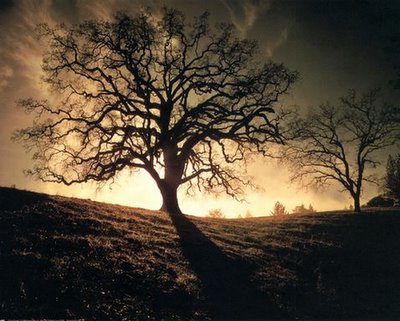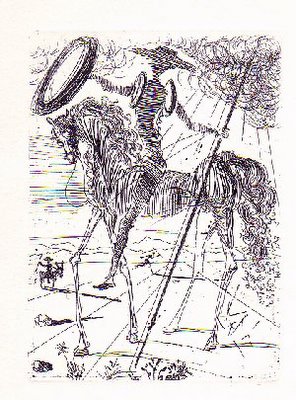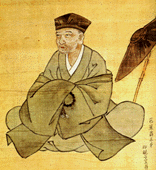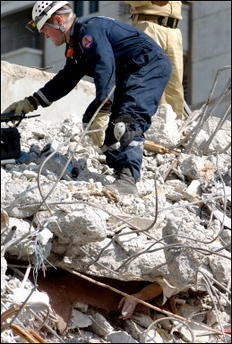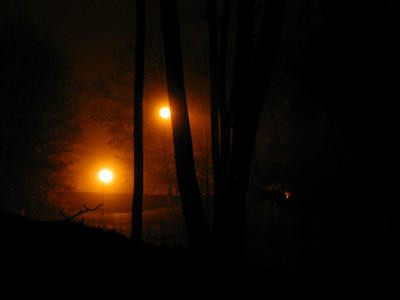loot (lūt)
v., loot·ed, loot·ing, loots.
v.tr.
1. To pillage; spoil.
2. To take as spoils; steal.
v.intr.
To engage in pillaging.
[Hindi lūṭ, from Sanskrit loptram, lotram, plunder.]
--From Answers.com
I didn't know that it came from sanskrit. One of the many things I seem to be learning these days.
The other thing Im learning has to do with the media and disaster management.
I have an issue. Its possibly a quibble, a technicality which in this world of live and let die, and struggling evolution means nothing. But nonetheless:
Its about painting the picture. I have no issue with the projected numbers: the death toll is how the rest of the world understands the gravity of the situation. I have no issue with depicting slow aid or angst at the government: that's how people and authorities realize how much there is to be done. Like what a bed of nails does for a sadhu, new reports keeps us from being complacent.
I do have an issue with the usage of the term "looting". As a verb the word is used as an alternative to "pillaging", "taking spoils" and "stealing".
There has been a lot of "looting" in the news recently. Photos of many Americans with arms full of stuff they didn't swipe a card for. And much horror and clicking of tongues.
Yesterday, while reading AP and Reuter news reports that described looting in Muzzafarbad, I wanted to know about the authenticity of the usage of that word. How did those news agencies use it with such sniffy, professional ease?
So I read a few of the reports, here, here, here and here.
These news reports were culled from online editions of TOI & Ontario's Chronicle Journal, as well as Sify and arabnews.com, two online news portals.
The headlines read as follows:
"Looting breaks out in quake-struck region" *chronicle Journal)
"Looting Erupts as Quake Victims Get Frustrated Waiting for Relief" (Arab News)
"After quake, looting strikes Muzaffarabad" (Sify)
"Looting begins in quake zone" (TOI)
If you read the articles, you will see that every declaration of looting is followed by its description, which ultimately breaks down to this: starving villagers steal biscuits and bread from a tea shop, fuel from a petrol bunk as the nights are turning cold.
Stealing. Pillaging. Taking spoils, even.
Forgive me if I have a problem with the headlines. They are needlessly sensational. They portend anarchy, instead of telling the tales of little people trying to keep what remains of themselves and their families alive.
No cars, Nikes,toilet paper or exercise bikes.
Food. Firewood.
My only question: I keep hearing tales of angry people raiding relief trucks, blankets being air-dropped, dead bodies lining the streets, clashes with sticks and stones between the hungry and the shop-keepers.
Where are the tales of those who are keeping each other safe, caring for the children, guarding their relative's houses now empty of life, but still filled with belongings? Surely these are happening?
And why this black-bad luck-crow telling of looting tales?
[And btw, anyone who believes its only poor, homeless victims of natural disaster who indulge in a little pilfering, Time begs to differ: It carried a story In May 2003, of "U.N. employees scrounging for lunch" when the food workers at the U.N headquarters went on strike — "eventually, the masses stripped the cafeterias of everything, including the silverware". Ahem. Stewart Stogel has the story, here.]
Here's a look at our past experience of quakes:
In January 1999, a quake measuring 6.0 rocked Columbia. The death toll was no where near the toll today in the north-west frontier. There were reports of "looting" however. And this wasn't the only instance. There were reports of "looting" [yes, I will continue to use those quote marks, deal with it] in Aceh, in the aftermath of the tsunami.
Lets do a little exercise. Read the three following quotes:
"One looter said: "It isn't stealing. The store's totally destroyed, and nobody has a house, nobody has food. All this is to share with the people."
Several officials said they were reluctant to crack down on people who had spent more than 48 hours without food or drink.
"What can I do if people are dying of hunger?" asked one policeman"- BBC news report on the Columbia quake, Thursday, January 28, 1999.
'One group broke into a petrol station to get fuel to burn wood for cooking and warmth, while others snatched government cars and jeeps. “People are starving. They have lost all their family members, their belongings,” local resident Akram Shah told AFP. “Everything is gone, people are buried alive. Nobody is helping us to find them.” '- Azhar Masood & Huma Aamir Malik,
Arab News.
'But help wasn't arriving fast enough for Indonesia's Sumatra island, where residents turned to looting to find food. "There is no help, it is each person for themselves here,'' district official Tengku Zulkarnain told el-Shinta radio from the island's devastated western coast... Red Cross official Irman Rachmat, also in Banda Aceh, said people on the island were in despair. "People are looting, but not because they are evil, but they are hungry,'' he said.'- Andi Djatmiko,
Associated Press.
Circle the words and ideas common to all three quotes.
I came up with starvation, hunger, loss, despair. You?
Looting according to what I was taught in school, was what vikings did when they sailed in their longships to the British coast. Looting consisted of stealing gold from the church, horses from the stable and women from the men.
In the aftermath of Katrina, there were reports of people carrying household goods away from department stores. What made those stories incongruous and worthy of comment was that it wasn't just a pair of shoes, it was pairs of shoes.
So maybe its only because there is no Wal-Mart, Costco or Target in Muzzafarbad and Kashmir that people aren't walking away with blenders, bean bags and pillows. Maybe if there had been a damaged department store, people would've walked in and "looted".
But the fact is, there is no such store, and most people were taking food. Not treasury notes or government bonds. I say most, because Yahoo! carries a story
here, in which the last lines talk about the main market area in the city of Muzzafarbad:
"Traders at the market complained that their shops had been looted by "outsiders" -- non-Kashmiris. "I ran a communications shop," said Shaheen Iqbal. "All the mobiles that were not damaged were stolen. I am left with nothing."
This was in the city of Muzzafarbad. One city. The worst-hit areas are those hilly and remote villages that even the army reaches only by air. Throwing around the word "looting" as a general descriptive makes the entire population of the north-western frontier appear given into anarchy completely. An aberration.
It is established that absolute despair and loss pushes the survival button within most people. In fact, the only record of any group of humans behaving differently when faced with a disaster of this magnitude, is a study of the Japanese who survived the earthquake in Kobe, 1995 (available
here)-- I quote: "... There were no reports of looting. Many shared what little food they had. And even though many were very upset with how the Japanese government handled (or mishandled) their situation, they accepted what had taken place and resolved to begin anew". Is it because the Japanese (refer the
Ronin legend) have had an ancient history of dignity and honor in the face of disaster? Is it because after being levelled at the end of WWII, they are prepared to face anything?
Perhaps. Good for the Japanese. I still have an issue with the wording of those headlines, though.
Maybe newspeople will tell me-- Hey. Its reporting. Our job is to get the news out and fast; its not worrying about being politically correct.
Get this, bub.
What you write, is what people who aren't present at the site take to be the truth. What you write defines thousands of victims of a great tragedy, who do not have the chance or immediate inclination to challenge or qualify your statement.
News reporting is about telling the truth, not selling a paper, or gaining hits on your website. You think its impossible to avoid sensationalizing the aftermath of a tragedy?
Here's the headline of a story covering the same details as the above four news reports. No derivative shmaltz. Just fact. Of all places, that article came off the Yahoo! news website, available
here. It reads:
"Rain, scuffles adds to the misery in quake-hit Pakistani city "
This was the story that carried that incident of the cell-phone shop I had quoted earlier. It was the only one who carried this detail. It was the only one, inspite of that detail, which didnt use the word-- you know which one.
Words are connotative tools. One would think its important to be sure what image we're chiselling out, especially when we're telling people about neighbours they haven't met.
This is possibly a quibble, a technicality which in this world of live and let die, and struggling evolution means nothing. Or not.
You tell me.



